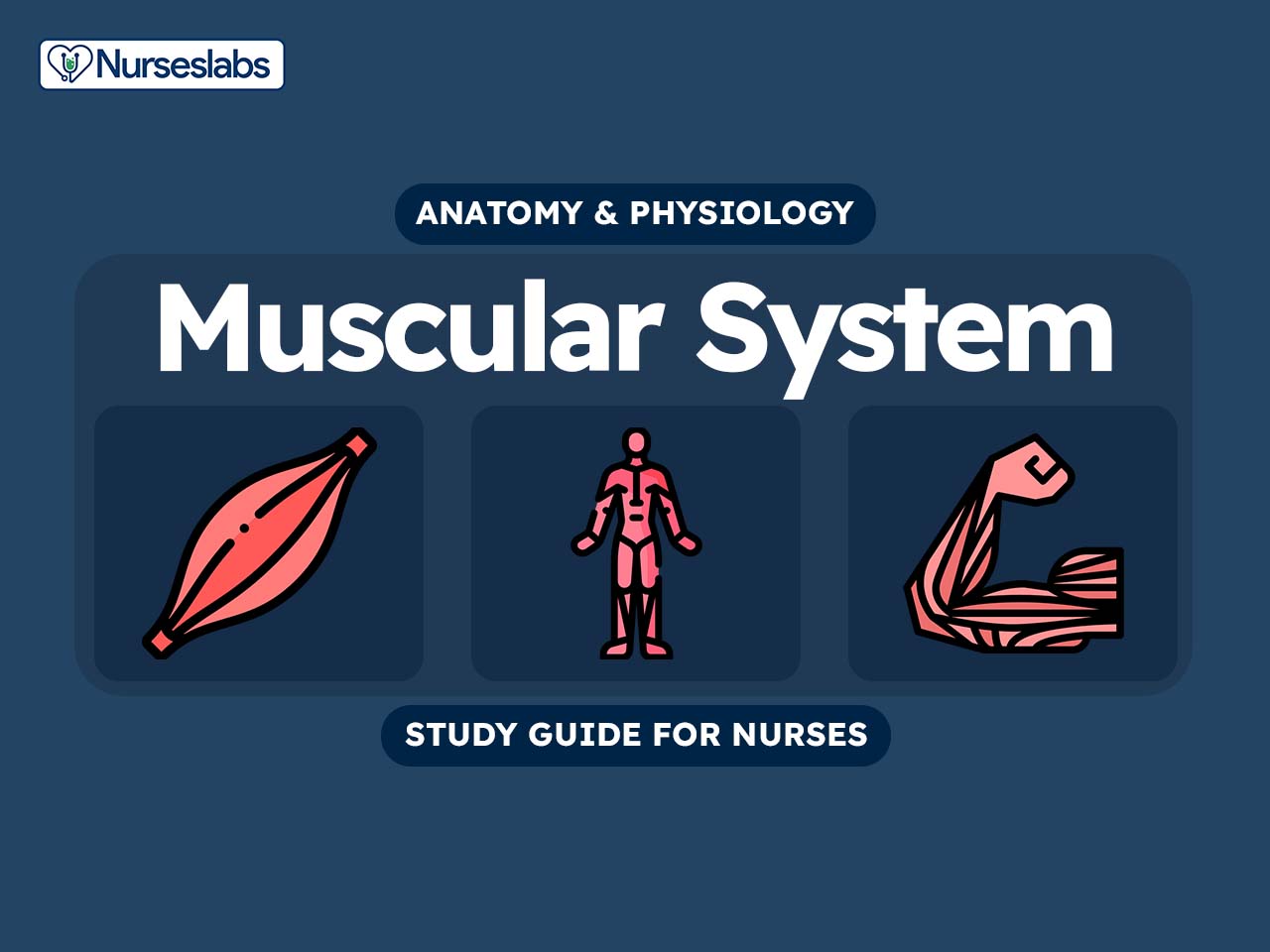Discover the Top 5 Ways to Keep The Muscular System Healthy – Learn effective strategies to maintain muscle health and prevent injuries with our top 5 tips.
To keep the muscular system healthy, engage in regular exercise, maintain a balanced diet, stay hydrated, ensure adequate rest, and incorporate stretching into your routine. The muscular system plays a vital role in everyday movements and activities, making it crucial to prioritize its health and well-being.
By implementing these top five ways, you can promote strength, flexibility, and overall functionality in your muscles, leading to improved performance and reduced risk of injuries. Taking proactive steps to care for your muscular system will not only enhance physical fitness but also contribute to your overall health and well-being.
It is important to invest time and effort into maintaining a healthy muscular system to enjoy a fulfilling and active lifestyle.
The Importance Of A Healthy Muscular System
Maintaining a healthy muscular system is essential for overall well-being and daily activities. Here’s why it’s crucial to prioritize the health of your muscles and the impact they have on your life.
The Role Of Muscles In Everyday Life
Muscles play a vital role in everything we do, from the simplest tasks to more complex activities. Walking, standing, lifting, and even breathing all rely on the strength and functionality of our muscles. They enable us to move, maintain proper posture, and perform various physical activities without experiencing discomfort or pain.
Impact Of Muscular Health On Overall Well-being
A healthy muscular system not only contributes to physical strength and endurance but also has a significant impact on our mental and emotional well-being. It helps to maintain a healthy weight, promotes better circulation, enhances flexibility, and reduces the risk of injuries. Furthermore, strong and healthy muscles can boost confidence and self-esteem, leading to a more positive outlook on life.
:max_bytes(150000):strip_icc()/Health-GettyImages-1456372154-4806fd331da34fa196fe0f1cf136d4f3.jpg)
Credit: www.health.com
Nutrition For Muscle Health
Discover the top 5 effective ways to support muscle health through proper nutrition. Including a diet rich in lean protein sources, essential vitamins and minerals, regular hydration, adequate rest, and consistent exercise can significantly enhance muscular system function and strength.
Employing these strategies can contribute to overall wellness and optimal muscle performance.
Protein-rich Diet
Eating protein-rich foods is crucial for maintaining muscle health.
Essential Vitamins And Minerals For Muscles
A variety of vitamins and minerals support muscle function.
Protein-rich foods such as lean meats, eggs, and legumes are vital for building and repairing muscles.
Vitamins like Vitamin D aid in muscle contraction and overall muscle health.
Minerals like calcium and magnesium are essential for muscle function and preventing cramps.
Ensure your diet includes a balance of protein, vitamins, and minerals to support a healthy muscular system.
Effective Muscle-building Exercises
The muscular system is an essential component of our body, providing strength, stability, and mobility. Keeping our muscles healthy and strong requires regular exercise and a balanced fitness routine. In this section, we will explore the top 5 ways to keep the muscular system healthy, focusing on effective muscle-building exercises.
Strength Training For Muscle Growth
Strength training exercises are vital for building muscle mass and promoting overall muscular health. These exercises involve resistance against a force, such as lifting weights or using resistance bands. Engaging in strength training on a regular basis can help increase muscle size, improve strength, and enhance physical performance. Here are some popular strength training exercises:
- Barbell Squats: This exercise targets the lower body, including the quadriceps, hamstrings, and glutes. It also activates the core muscles, promoting stability and balance.
- Dumbbell Bench Press: By targeting the chest, shoulders, and triceps, this exercise helps strengthen the upper body. It is especially effective for developing chest muscles.
- Deadlifts: Deadlifts engage multiple muscles, including the back, legs, and glutes. This exercise is excellent for overall strength and building a strong posterior chain.
- Shoulder Press: This exercise focuses on the shoulder muscles, specifically the deltoids. It helps improve shoulder stability and builds strength in the upper body.
- Bicep Curls: Bicep curls isolate the biceps, helping to build arm strength and definition. This exercise is commonly done with dumbbells or barbells.
Cardiovascular Exercises For Muscle Endurance
While strength training is essential for building muscle mass, cardiovascular exercises play a crucial role in improving muscle endurance. These exercises increase heart rate and help deliver oxygen and nutrients to the muscles, promoting their overall health and endurance. Incorporating regular cardiovascular exercises into your fitness routine can enhance muscle function and stamina. Here are some effective cardiovascular exercises:
- Running or Jogging: Running or jogging is a high-impact cardiovascular exercise that engages multiple muscles in the legs and core. It helps improve cardiovascular fitness and endurance.
- Cycling: Cycling is a low-impact exercise that targets the lower body muscles, including the quadriceps, hamstrings, and glutes. It is an excellent option for individuals with joint limitations.
- Swimming: Swimming is a full-body workout that engages muscles throughout the body. It is low-impact, making it suitable for people of all fitness levels.
- Jumping Rope: This simple yet effective exercise engages various muscles, including the calves, quads, and core. Jumping rope helps improve cardiovascular fitness and coordination.
- High-Intensity Interval Training (HIIT): HIIT workouts involve short bursts of intense exercises followed by brief recovery periods. They engage multiple muscles while also providing cardiovascular benefits.

Credit: nurseslabs.com
Rest And Recovery
Rest and recovery play a vital role in keeping our muscular system healthy. When we engage in physical activities, our muscles undergo wear and tear, requiring adequate rest for repair and growth. Ignoring rest can lead to overexertion, muscle fatigue, and even injuries. To ensure optimal muscular health, it is essential to understand the importance of rest in muscle repair.
The Importance Of Rest In Muscle Repair
Rest is not just about taking a break from physical activities; it is a crucial part of the muscle repair process. When we rest, our muscles get a chance to recover from the stress they have endured during exercise. Without sufficient rest, the muscles do not have the opportunity to repair themselves, leading to decreased performance and increased risk of injuries. Aim for at least 1-2 rest days per week to allow your muscles to recover fully.
Recovery Techniques For Muscular Health
There are various recovery techniques that can help maintain the health and functionality of our muscular system. Incorporating these techniques into your routine can optimize muscle repair and overall performance.
- Proper Sleep: Aim for 7-9 hours of uninterrupted sleep each night. During sleep, our body releases growth hormones that facilitate muscle repair and recovery.
- Hydration: Staying hydrated helps flush out toxins from the muscles and improves nutrient delivery, aiding in faster recovery. Make it a daily goal to consume at least 8 cups (64 ounces) of water.
- Nutrition: Providing your body with the necessary nutrients through a balanced diet is essential for muscle repair. Include lean proteins, healthy fats, and a variety of fruits and vegetables in your meals to support muscle recovery.
- Stretching and Foam Rolling: Incorporate stretching and foam rolling exercises into your post-workout routine to increase blood flow, reduce muscle soreness, and improve flexibility.
- Active Recovery: Engage in light physical activities on rest days, such as walking or gentle yoga, to promote blood circulation and help the muscles recover more efficiently.
By prioritizing rest and incorporating these recovery techniques into your routine, you can maintain a healthy muscular system, improve overall performance, and reduce the risk of muscle-related injuries.
Injury Prevention And Care
The muscular system is a vital component of overall physical health. Keeping it in top condition requires not only strengthening exercises but also proper injury prevention and care. Understanding the importance of these practices can help you maintain a healthy and functional musculoskeletal system.
Warm-up And Stretching
Prior to any physical activity, it is crucial to warm up your muscles and prepare them for the task ahead. Warm-up exercises increase blood flow, raise body temperature, and loosen muscles, reducing the risk of injury during exercise or sports. Incorporating stretches into your warm-up routine can further optimize the flexibility and range of motion of your muscles.
Understanding Common Muscular Injuries
Being aware of common muscular injuries can help you take necessary precautions and seek timely treatment. Strains, sprains, and muscle tears are among the most frequently experienced injuries. These can occur due to overexertion, sudden movements, inadequate warm-up, or poor form during exercise. Familiarize yourself with the symptoms and causes of these injuries to better protect your muscular system.
Proper Posture And Technique
Maintaining proper posture while sitting, standing, or engaging in physical activities is essential for reducing the strain on your muscles. Poor posture can lead to imbalances and undue stress on certain muscle groups, increasing the risk of injury. Additionally, using correct technique during exercise and ensuring proper form can help prevent overloading specific muscles, tendons, and joints, minimizing the likelihood of injury.
Building rest and recovery periods into your exercise routine is crucial for maintaining muscle health. Overtraining and inadequate rest can lead to fatigue, weakened muscles, and a higher susceptibility to injury. Allow your muscles time to repair and replenish by incorporating rest days and lighter workout sessions into your schedule. Adequate sleep, hydration, and a balanced diet also play important roles in supporting muscle recovery.
Proactive Injury Management
In the event of an injury, it is crucial to promptly address the issue through proactive injury management. Applying the R.I.C.E. (rest, ice, compression, elevation) method can help reduce swelling, minimize pain, and support the healing process. Seeking professional medical advice and following recommended treatment protocols can prevent further damage and facilitate a faster recovery.
Hydration For Optimal Muscle Function
Optimal muscle function is closely linked to proper hydration. Maintaining adequate levels of water in the body is essential for supporting muscle health, among many other bodily functions. In this section, we will delve into the critical role of water in muscle health and explore hydration strategies for active muscles.
The Role Of Water In Muscle Health
Water is crucial for the overall functioning of the muscular system. It serves as a medium for nutrient transportation to muscle cells, aiding in the growth and repair of muscle tissue. Additionally, hydration is fundamental for regulating body temperature during physical activity, ensuring that muscles can perform optimally. Insufficient water intake can lead to muscle fatigue and decreased physical performance.
Hydration Strategies For Active Muscles
When it comes to keeping the muscular system functioning at its best, it’s important to adopt effective hydration strategies for active muscles. These strategies include:
- Regular water intake throughout the day.
- Pre-exercise hydration, ensuring adequate fluid levels before engaging in physical activity.
- Rehydration during and after exercise to replenish fluids lost through sweat.
- Incorporating water-rich foods such as fruits and vegetables into the diet.
- Monitoring urine color to assess hydration status – pale yellow color indicates good hydration.
The Mind-muscle Connection
Understanding the mind-muscle connection is essential for maintaining a healthy muscular system. This crucial link between the brain and muscles impacts overall physical performance, strength, and recovery. By focusing on enhancing this connection, individuals can maximize their muscle health and function.
Enhancing Muscle Performance Through Mental Focus
Engaging in mental focus techniques can significantly improve muscle performance. By visualizing exercises and movements before performing them, individuals can enhance their mind’s connection to their muscles, leading to improved coordination and strength during workouts. Utilizing techniques such as positive self-talk and focusing on the specific muscle being worked can further enhance physical performance.
Mental Techniques For Muscle Recovery
Incorporating mental techniques into muscle recovery can accelerate the healing process. Visualization and relaxation techniques can help reduce muscle tension and promote faster recovery. Additionally, practicing mindfulness and meditation can aid in managing stress and promoting overall muscle relaxation, contributing to a quicker recovery after intense physical activity.
:max_bytes(150000):strip_icc()/are-you-eating-for-muscle-3121316-notext-FINAL-0c4e90b262584136a740c88a737726d9.png)
Credit: www.verywellfit.com
Seeking Professional Guidance
Importance Of Consulting A Health Professional
A health professional provides tailored advice for optimal muscular health.
Working With A Personal Trainer Or Physiotherapist
Personal trainers and physiotherapists offer expert guidance and support.
Frequently Asked Questions Of Top 5 Ways To Keep The Muscular System Healthy
What Are 5 Ways To Take Care And Keep The Muscular System Healthy?
To maintain a healthy muscular system, focus on regular exercise, including strength training and flexibility exercises. Adequate hydration and proper nutrition are essential. Sleep and rest are essential for the repair of muscles. Avoid overtraining and always practice proper form and technique during workouts.
What Are The 5 Most Important Parts Of The Muscular System?
The 5 most important parts of the muscular system are skeletal muscles, smooth muscles, cardiac muscles, tendons, and ligaments.
What Are The 7 Main Functions Of The Muscular System?
The 7 main functions of the muscular system include movement, stability, posture, generating heat, protecting organs, aiding digestion, and providing circulation support.
What Are 5 Things The Muscular System Does To Maintain Homeostasis Work With The Rest Of The Body?
The muscular system helps maintain homeostasis by regulating body temperature, assisting with digestion and circulation, supporting movement and posture, and protecting internal organs. It works in harmony with other systems, like the respiratory and circulatory systems, to keep the body functioning optimally.
Conclusion
Maintaining a healthy muscular system is vital for overall well-being. By incorporating a balanced diet, regular exercise, proper hydration, adequate rest, and avoiding excessive stress, you can ensure optimal muscle health. Remember, small lifestyle changes can lead to significant improvements in your muscular system function and quality of life.

I am a health writer and blogger based in the US and UK. I have been with the health department for six years. And I give advice on various health problems and solutions. I have a lot of experience in health matters and I share it here.

